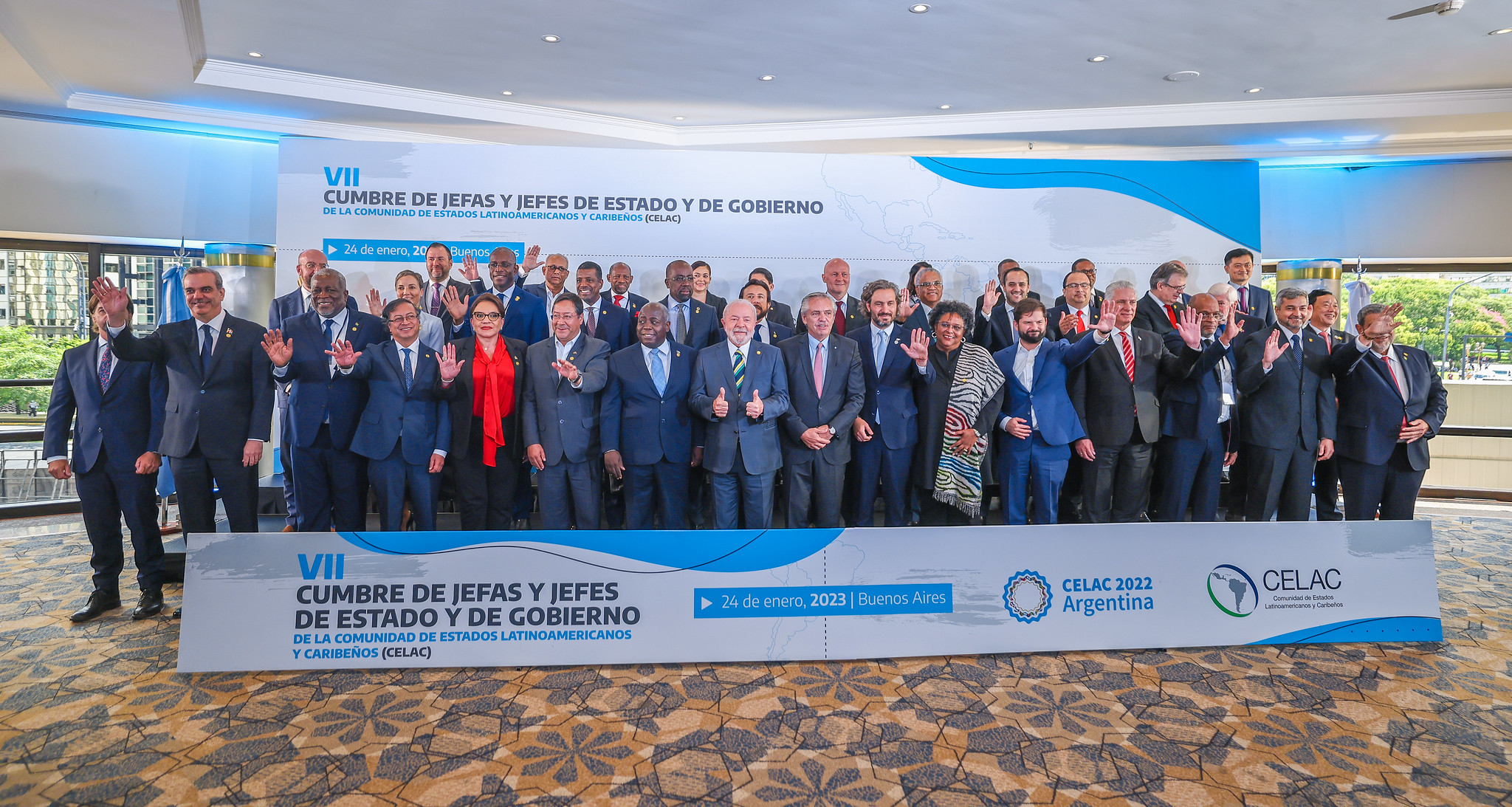
Published 25/01/2023 12:24 | Edited 01/26/2023 11:18 AM
Held in Argentina, the 7th Summit of the Community of Latin American and Caribbean States (Celac) ended on Tuesday (24) with the approval of the Declaration of Buenos Aires (check it out) and 11 other special declarations.
The edition marked the return of Brazil after Bolsonaro removed the country from this fundamental meeting for regional integration. The Summit was attended by 33 countries, which approved the final document, welcoming Brazil’s return to the bloc and highlighting Brazil’s commitment to unity and joint work in the region.
In addition, Brazil’s candidacy to host the 30th United Nations Conference on Climate Change (COP-30), in 2025, in the city of Belém, was celebrated.
Read too: At Celac, Lula defends “building a peaceful world order”
The Declaration of Buenos Aires has 28 pages and 111 topics, among which the commitment to regional integration, democracy, protection and respect for human rights and the fight against disinformation, which induces political radicalization, is highlighted.
The document also addresses post-pandemic economic recovery, focused on food and energy security, as well as commitments to the environment, education, science and technology, vaccine distribution and migration.
It was designated that the presidency of CELAC in 2023 will be held by the Caribbean country Saint Vincent and the Grenadines, the first English-speaking nation to assume the position.
special declarations
The Celac Summit approved 11 special declarations (check them out here). Among the approved declarations are: the reiteration of Argentina’s sovereignty over the Malvinas Islands, the fight against terrorism, support for nuclear disarmament and the fight against firearms trafficking.
Other statements are on regional energy integration, harmony with the environment, ocean conservation, traditional food systems, preservation of indigenous languages, and women’s empowerment and gender equality.
End of blockade on Cuba
The Declaration of Buenos Aires reiterated the request for the end of the economic, commercial and financial blockade against Cuba.
In this sense, Celac also approved a special declaration on the subject (see here). It requests that the blockade filed by the United States end.
The document states that the blockade is contrary to the principles of the Charter of the United Nations and International Law. The concern with the blockade in the context of the Covid-19 pandemic is reiterated, which negatively impacted Cuba in its international transactions, harming the population.
Furthermore, the CELAC countries reinforced their rejection of the arbitrary inclusion of Cuba, unilaterally by the US, in the list of countries sponsoring terrorism and request the exclusion of the country from the infamous list. Finally, it is stressed that the blockade causes serious damage to the well-being of the Cuban people and that the UN has also approved a resolution calling for the end of sanctions imposed by the United States.
Source: vermelho.org.br

